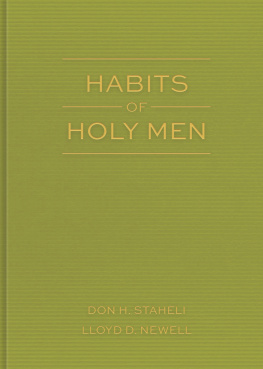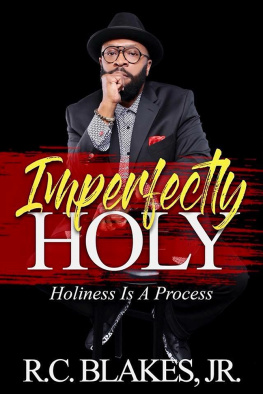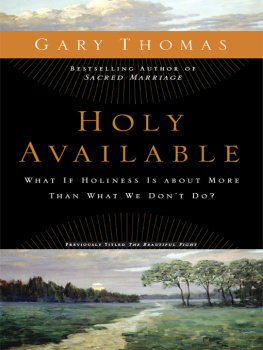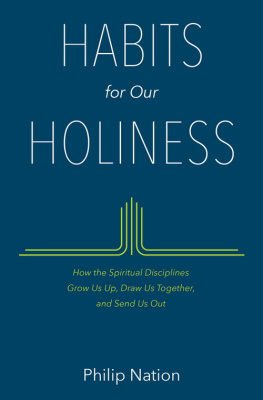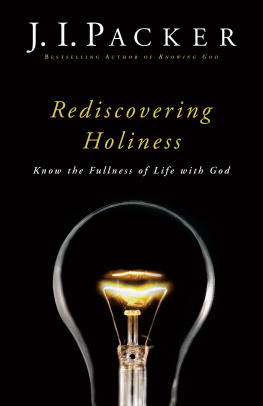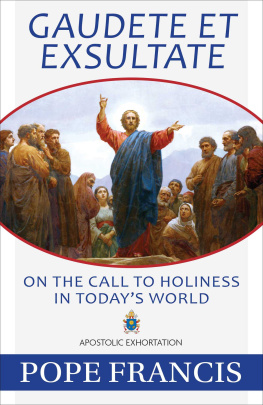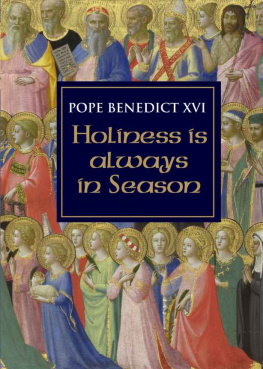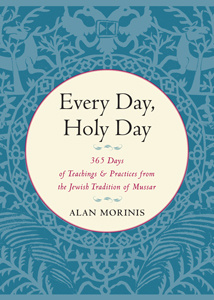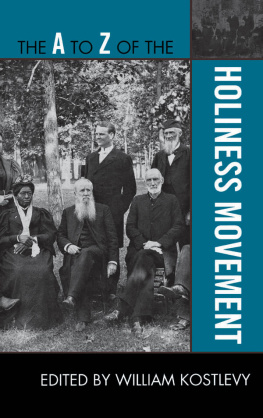
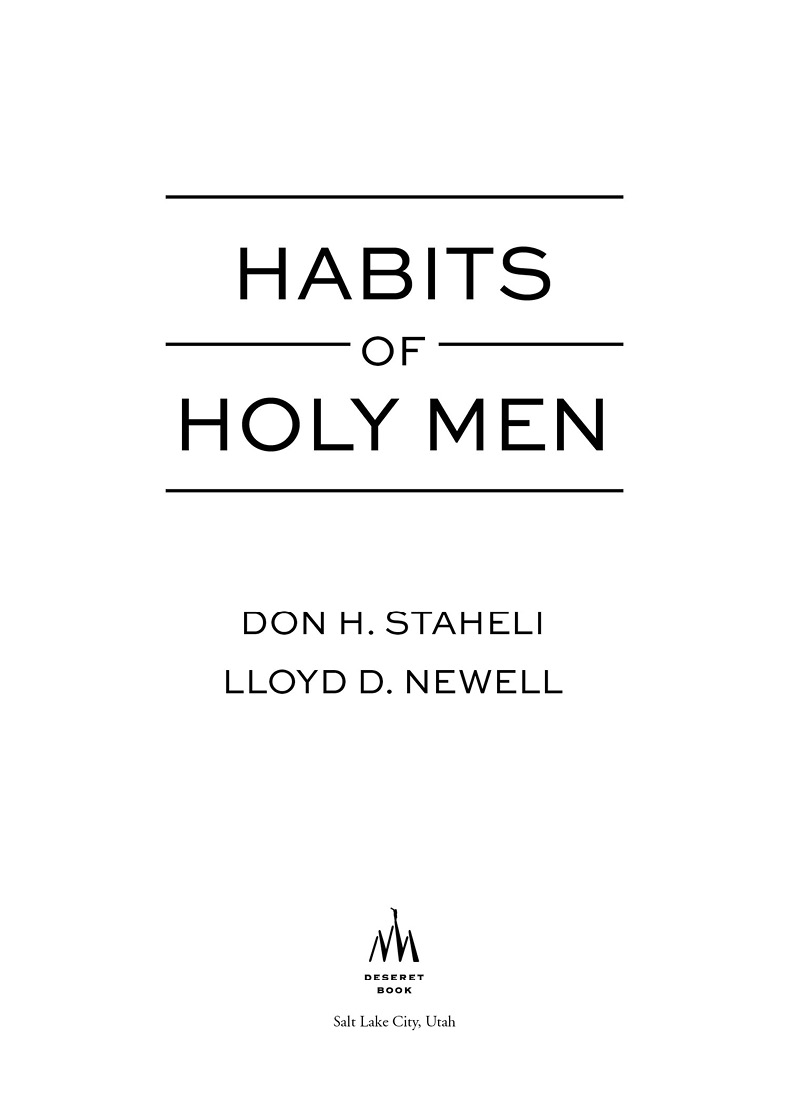

This attempt to write a book on the habits of holiness presupposes some personal understanding of holiness and of the process of achieving this sacred condition. We do not, however, pretend to be holier than thou or to know all the answers. Like you, we are striving for a greater measure of holiness in our own lives; we, too, are trying to become holier, better men. Much of what we have learned about the process comes from what we have observed in others, particularly our wonderful wives. We are all, as children of a loving Heavenly Father, endowed with the capacity to refine our lives and become more like our Divine Parents. Our sincere hope is that we may learn together and, through trial and error, mistakes and repentance, make progress along the straight and narrow path that will lead us back into the presence of God. The purpose of this brief tome is to give a little insight that will tighten your grip on the iron rod and bring you greater hope and joy. The writing of it has certainly done so for us.
We greatly appreciate the assistance we have received from Liz Wagner, Tracy Keck, and the Deseret Book teamas well as Ted Barnes for his editorial expertise. We are most grateful for the love, kindness, and holy examples of our wives, Cyndy and Karmel.
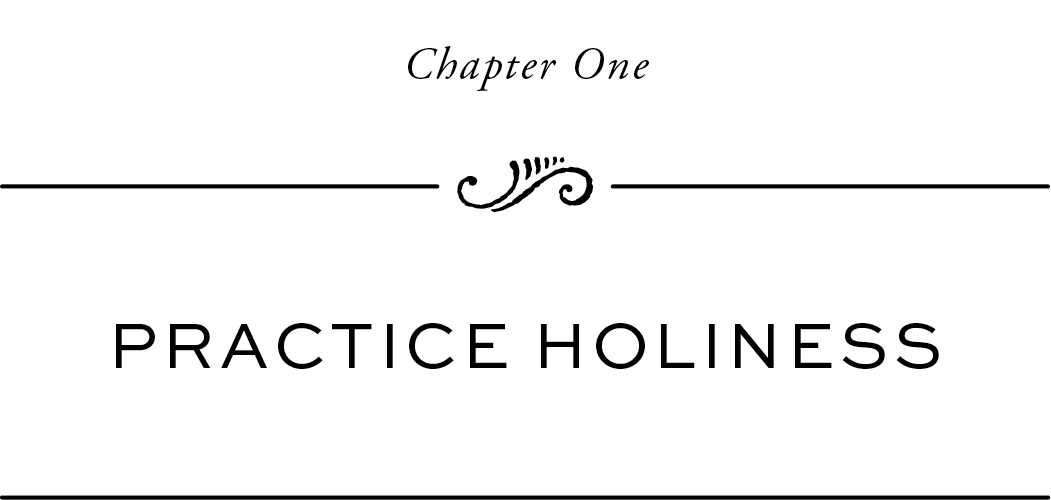
When you think of a holy man, what comes to mind? You may picture a monk in a scratchy, brown robe, living an ascetic life of contemplation and seclusion. Or you may imagine a religious zealot practicing his beliefs to the extreme, living a life of severity and exclusion. These examples probably do not represent how you would want to practice your faith. Yet, like most Latter-day Saint men, you do want to live a life of devotion to the Savior, a life that resembles His to some small degreea life of holiness that will be acceptable to Him and will lead you and your family back into the presence of God.
To live this kind of holy life, it is essential to understand the principles of the gospel of Jesus Christ, as well as some aspects of behavioror habits of holinessthat will help you achieve it. Faith and wisdom dictate that if you do the right thing, the right result will follow. By practicing the habits of holiness, you will be doing the right thing, andin part in this life and in a fullness in the nextyou will become holy.
But What Is Holiness?
For the purposes of this book, think of holiness simply as harmony with God. The holy man has learned to harmonize his will with the will of Heavenly Father. Jesus works under the direction of the Father and is in complete harmony with Him. To the degree that it is humanly possible, the holy man will strive to harmonize his life with God, just as Jesus did.
Holiness, your personal harmony with Heavenly Father, is more than an attitude or a religious philosophy. Holiness is a devoted way of life that reflects obedience to the commandments of God and a sincere desire to subject your will to His. A holy mans efforts are not perfect, but he keeps striving, trusts in God, and does his best to live habits of holiness. Remember, holiness in the here and now does not mean perfection (see Matthew 5:48, footnote b ). It means your heart and mind are right with God and you are doing your best to be true.
A Holy Heart
Unlike worldly success, which is often defined by external achievements and material accumulation, holiness is measured by looking at the heart. The prophet Samuels search for a new king of Israel is a good example of this truth. The Lord directed Samuel to the house of Jesse, where the new king was to be found and anointed. When Samuel saw Jesses son Eliab, he was impressed by Eliabs size and appearance. Eliab looked like a king! Surely this was the man. But the Lord corrected Samuel right away, saying, Look not on his countenance, or on the height of his stature;... for the Lord seeth not as man seeth; for man looketh on the outward appearance, but the Lord looketh on the heart (1 Samuel 16:7). Eventually Samuel met Jesses youngest son, David, likely just a teenager. Though Davids appearance was youthful and he was not as charismatic as his brother, Davids heart was right, and he was anointed king.
Deep down, men want to be judged by their heart, not by their outward appearance, but we often have trouble letting people see that side of us or even accessing it ourselves. Our feelings may not be all that open to review, but that doesnt mean they dont exist. Men can be tender and emotional, but we are often unlikely to show it. With a little introspection, men can feel the need for holiness and long for the closeness to God that it implies.
Sweet Is the Work
Achieving holiness does take workhard, consistent, time-consuming, sometimes heartbreaking, often exhilarating work. As A. W. Tozer wrote in his book The Pursuit of God : Come near to the holy men and women of the past and you will soon feel the heat of their desire after God. They mourned for Him, they prayed and wrestled and sought Him day and night, in season and out, and when they had found Him the finding was all the sweeter for the long seeking.
We speak often of enduring to the end. Endurance leading to holiness is hard work. It requires stamina and a deep willingness to undergo stress without giving in to the desire to quit. Jesus gave this counsel to the Nephites: Look unto me, and endure to the end, and ye shall live; for unto him that endureth to the end will I give eternal life (3 Nephi 15:9). Thankfully, the Lord will not require of us more than we are able to give. Just as God will not suffer that we are tempted above that which we are able to bear (see 1 Corinthians 10:13), He will not ask us to endure more than He knows we can manage, which may be far more than we believe we can. Our loving Father knows our limits. We are each on a personal and individualized journey to the summit of our potential. Like the climb up a mountain, the pathway to holiness is steep and can be intimidating, but the views from holy heights are stunning and worth every challenging step.
Holy Covenants and Priesthood
One of the ways we practice holiness is by making covenants with God and keeping the promises we make to Him. There is a difference between a covenant and a promise. A promise can be unilateral: I promise you. It is a sign of submission that does not depend on reciprocation from another party. A covenant is mutual; we make it with someone. It requires another party with whom we make a binding agreement. While promises can stand alone and remain in force regardless of the actions of another, covenants bind us to one another, and their efficacy is dependent on the actions of both parties.
There is profound meaning in the word keep . In addition to the common uses of the word, as in keep a secret or keep the Sabbath day holy, there is the connotation that comes with the phrase keep from harm. In the beautiful Loire Valley in France are magnificent castles, or chateaux. Some of them are surrounded by high walls with an open area in the center. This area is called the keep . The keep is the portion of the castle where the inhabitants can feel safest from outside dangers. All the protective resources available are put in place to keep them from harm. So too, when we keep the commandments and keep our covenants, all the spiritual protection of heaven is brought to bear in our behalf. And truly, the home, our personal castle, is the first line of defense. The greatest protection is found in a covenant-keeping home presided over by a worthy patriarch who honors his priesthood.

